Grow a stronger world, starting in your backyard

This last year, the COVID‑19 pandemic turned life upside down. Though our world is beginning its recovery from the deadly virus, the effects of climate change will increasingly disrupt multiple aspects of our lives just as the pandemic has.
We saw this over this past year with the wildfires along the West Coast and the unseasonably cold weather in the South. And as warmer summers combine with shifting rain patterns to strain our water resources, now is the time to grow a stronger world. You can start by cultivating your climate resilience in your own backyard.
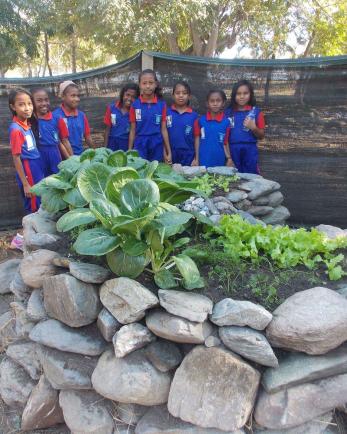
Keyhole gardens, named for their shape, were first used as a way to grow nutritious food in harsh climates. Our teams have been helping communities in Timor-Leste build these gardens, where natural resources are dwindling. As a result, families and farmers are able to withstand increasingly unpredictable weather.
A fresh way to get food
In Timor-Leste, where rain is scarce, rural farmers depend on the weather to support themselves and their families. For growing their own garden, Domingas (pictured above) and her husband Evaristo’s closest water source is a river 40 minutes away. During the dry season, the river stops flowing and they can’t get water for their plants. Along with their neighbors, they worked with Mercy Corps teams to harvest rainwater and build personal keyhole gardens in their community.
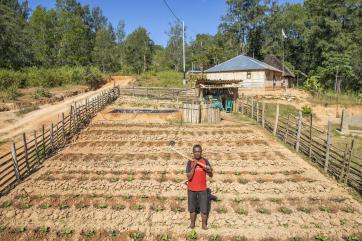
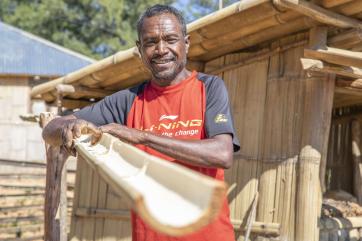
“The keyhole garden gives us the opportunity to have something close to our house and we can manage it easily. Whenever we want, we can grab food from the garden,” says Evaristo.
Keyhole gardens can supply you with more than just food. With their unique design, the gardens provide solutions for water conservation, waste reduction, and easy access to vegetables.
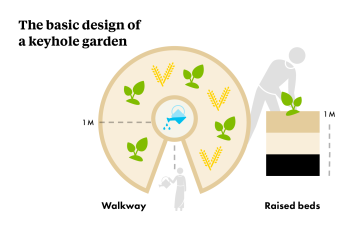
Its central column is where the garden is watered, creating a direct path to your vegetables’ roots and ensuring that not a drop is wasted.
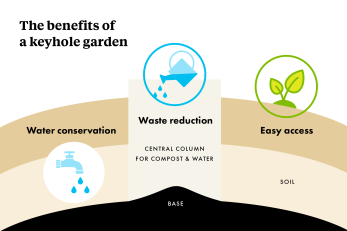
The column also provides a space for compost to be used, which helps keep waste — like table scraps, grass clippings, and even small amounts of newspaper and cardboard — out of landfills.
Lastly, its raised plot can be easily harvested without having to kneel down or bend over.
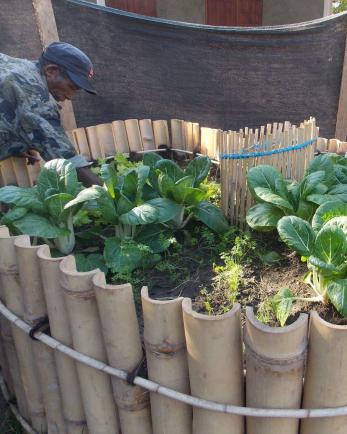
Ready to take advantage of the climate-resilient features by building your own keyhole garden? There are many easy-to-follow resources online or use these instructions to get started.
How communities across the globe are tackling climate change
Mercy Corps’ teams are working alongside communities threatened by the climate crisis. Together, we’re creating and applying solutions in partnership with farmers and families adapting to the challenges of climate change. In Jordan, farmers are working with our teams to increase their harvests with smart irrigation. Natural resource committees in Kenya are training with Mercy Corps, so they can ensure that herders have enough water for their livestock.
It’s through projects like these and the keyhole gardens in Timor-Leste that communities can prepare, adapt and thrive in spite of the rising challenges of climate change. Even yours!